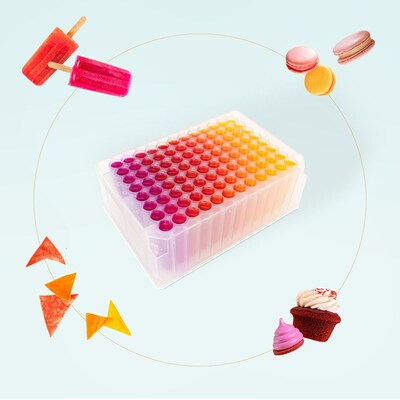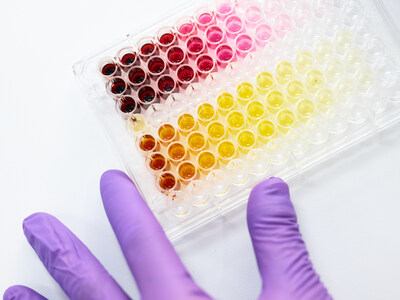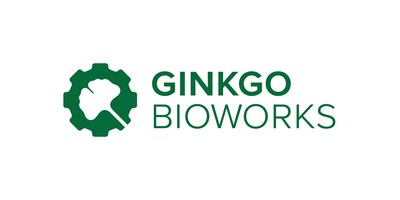Phytolon and Ginkgo Bioworks Successfully Achieve First Milestone to Produce Vibrant Natural Food Colors via Two Producing Strains
- This first milestone has made the full color palette of the yellow-to-purple spectrum accessible for Phytolon's food colors and has further established a unique and cost-efficient offering for the food industry
- Phytolon's natural betalain pigments, produced through fermentation-based technologies, offer safe, sustainable alternatives to synthetic dyes, addressing growing regulatory concerns and consumer demand for natural products
- Ginkgo Natural Product Services played a crucial role in enhancing the efficiency of Phytolon's yeast strains, ensuring the consistent and robust production of sustainable food colors via two producing strains
YOKNE'AM ILLIT,
Ginkgo and Phytolon's partnership, which began in February 2022, aims to produce vibrant betalain pigments spanning the entire yellow-to-purple spectrum using cell engineering. The successful completion of the project's first milestone unlocks the commercial potential of Phytolon's yellow-to-purple palette and further establishes this broad and cost-efficient offering to its clients. By leveraging Ginkgo Natural Product Services, Phytolon has significantly improved the efficiency of its yeast strains to generate these vibrant, sustainable colors and offer cost-efficient replacements to artificial dyes.
Phytolon's naturally produced betalain pigments can be used throughout the food industry as safe, sustainable, and viable alternatives to synthetic dyes, which are facing increased scrutiny and bans. As governments continue to intensify regulations on synthetic dyes, consumers will increasingly seek out more sustainable and nature-derived products. By partnering with Ginkgo, Phytolon is in a strong position to scale their robust array of food colorants for the global market. Following the successful completion of the partnership's first milestone, Phytolon soon expects to bring the full color palette enabled by these two new strains to market. Ginkgo and Phytolon will continue to work together under their existing agreement toward achieving additional milestones that further increase production efficiency.
"We are so excited to reach this key milestone with our partner, Ginkgo Bioworks. This achievement puts our colors at the forefront to efficiently replace artificial dyes in our food and create a healthy and sustainable world," said Tal Zeltzer, co-founder and CTO of Phytolon. "Our clients are now able to explore high-performing natural colors in their brands, covering the full range from purple to pink, red, orange, and yellow shades."
"We are thrilled to see our collaboration with Phytolon accelerate, and we're proud to be a driving force behind the realization of this milestone and the R&D breakthroughs it represents," said Kevin Madden, Senior Vice President of Commercialization at Ginkgo Bioworks. "Ginkgo Natural Product Services have enabled Phytolon's products to be competitive worldwide and create a broader palette of options for the industry. We're happy to be able to provide innovators like Phytolon with our services and give access to our codebase to accelerate their product development. As we celebrate this success, we look forward to sustaining this momentum to further enhance the performance of Phytolon's products."
Learn more about Ginkgo Natural Product Services at https://www.ginkgobioworks.com/offerings/natural-products-services/.
And read Ginkgo's whitepaper on the Bioproduction of Aromatic Molecules at https://www.ginkgobioworks.com/offerings/whitepaper-bioproduction-of-aromatic-molecules/.
About Ginkgo Bioworks
Ginkgo Bioworks is the leading horizontal platform for cell programming, providing flexible, end-to-end services that solve challenges for organizations across diverse markets, from food and agriculture to pharmaceuticals to industrial and specialty chemicals. Ginkgo's biosecurity and public health unit, Concentric by Ginkgo, is building global infrastructure for biosecurity to empower governments, communities, and public health leaders to prevent, detect and respond to a wide variety of biological threats. For more information, visit ginkgobioworks.com and concentricbyginkgo.com, read our blog, or follow us on social media channels such as X (formerly known as Twitter) (@Ginkgo and @ConcentricByGBW), Instagram (@GinkgoBioworks and @ConcentricByGinkgo), Threads (@GinkgoBioworks) or LinkedIn.
About Phytolon
Phytolon offers a game-changing solution for natural food coloring to the food industry, by leveraging its fermentation-based technology to produce healthy, cost-efficient, and sustainable colors in a wide range of shades. Phytolon has established its capabilities toward product commercialization in
Forward-Looking Statements of Ginkgo Bioworks
This press release contains certain forward-looking statements within the meaning of the federal securities laws, including statements regarding the capabilities and potential success of the partnership and Ginkgo's cell programming platform. These forward-looking statements generally are identified by the words "believe," "can," "project," "potential," "expect," "anticipate," "estimate," "intend," "strategy," "future," "opportunity," "plan," "may," "should," "will," "would," "will be," "will continue," "will likely result," and similar expressions. Forward-looking statements are predictions, projections and other statements about future events that are based on current expectations and assumptions and, as a result, are subject to risks and uncertainties. Many factors could cause actual future events to differ materially from the forward-looking statements in this press release, including but not limited to: (i) volatility in the price of Ginkgo's securities due to a variety of factors, including changes in the competitive and highly regulated industries in which Ginkgo operates and plans to operate, variations in performance across competitors, and changes in laws and regulations affecting Ginkgo's business, (ii) the ability to implement business plans, forecasts, and other expectations, and to identify and realize additional business opportunities, (iii) the risk of downturns in demand for products using synthetic biology, (iv) the uncertainty regarding the demand for passive monitoring programs and biosecurity services, (v) changes to the biosecurity industry, including due to advancements in technology, emerging competition and evolution in industry demands, standards and regulations, (vi) our ability to realize the expected benefits of merger and acquisition transactions, (vii) the outcome of any legal proceedings against Ginkgo, including as a result of recent acquisitions, (viii) our ability to realize the expected benefits from and the success of our Foundry platform programs, (ix) our ability to successfully develop engineered cells, bioprocesses, data packages or other deliverables, and (x) the product development or commercialization success of our customers. The foregoing list of factors is not exhaustive. You should carefully consider the foregoing factors and the other risks and uncertainties described in the "Risk Factors" section of Ginkgo's quarterly report on Form 10-Q filed with the
PHYTOLON CONTACT:
info@phytolon.com
GINKGO BIOWORKS INVESTOR CONTACT:
investors@ginkgobioworks.com
GINKGO BIOWORKS MEDIA CONTACT:
press@ginkgobioworks.com
![]() View original content to download multimedia:https://www.prnewswire.com/news-releases/phytolon-and-ginkgo-bioworks-successfully-achieve-first-milestone-to-produce-vibrant-natural-food-colors-via-two-producing-strains-302048529.html
View original content to download multimedia:https://www.prnewswire.com/news-releases/phytolon-and-ginkgo-bioworks-successfully-achieve-first-milestone-to-produce-vibrant-natural-food-colors-via-two-producing-strains-302048529.html
SOURCE Ginkgo Bioworks










